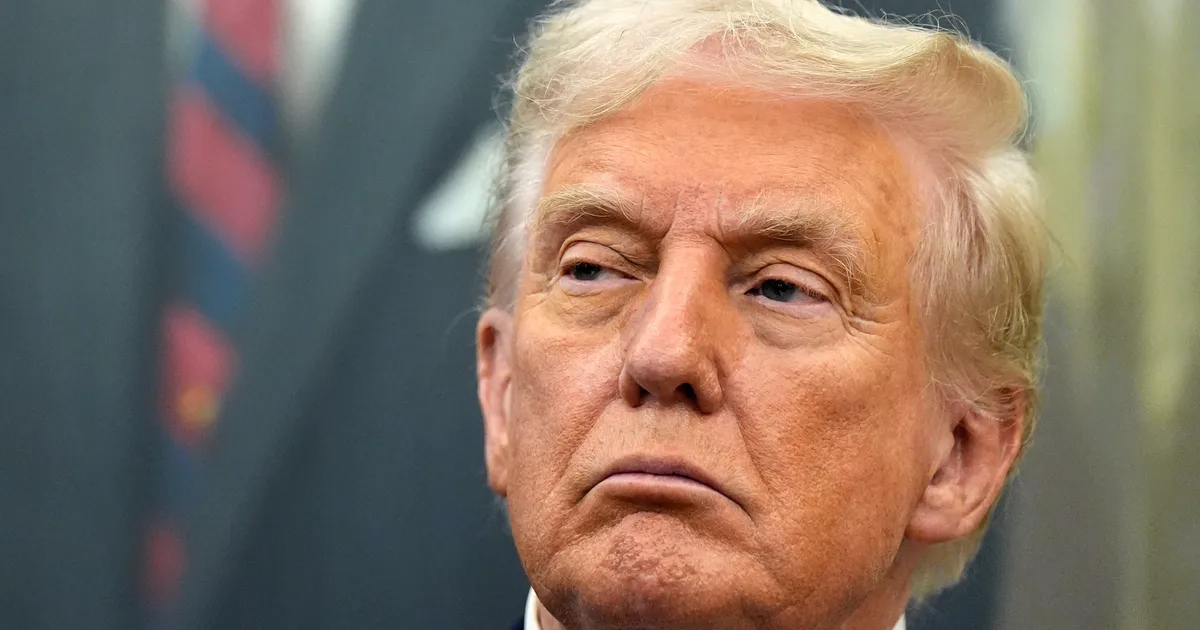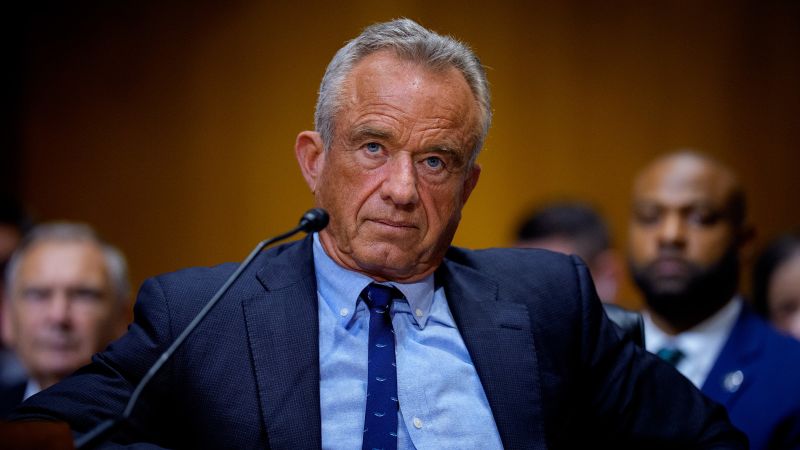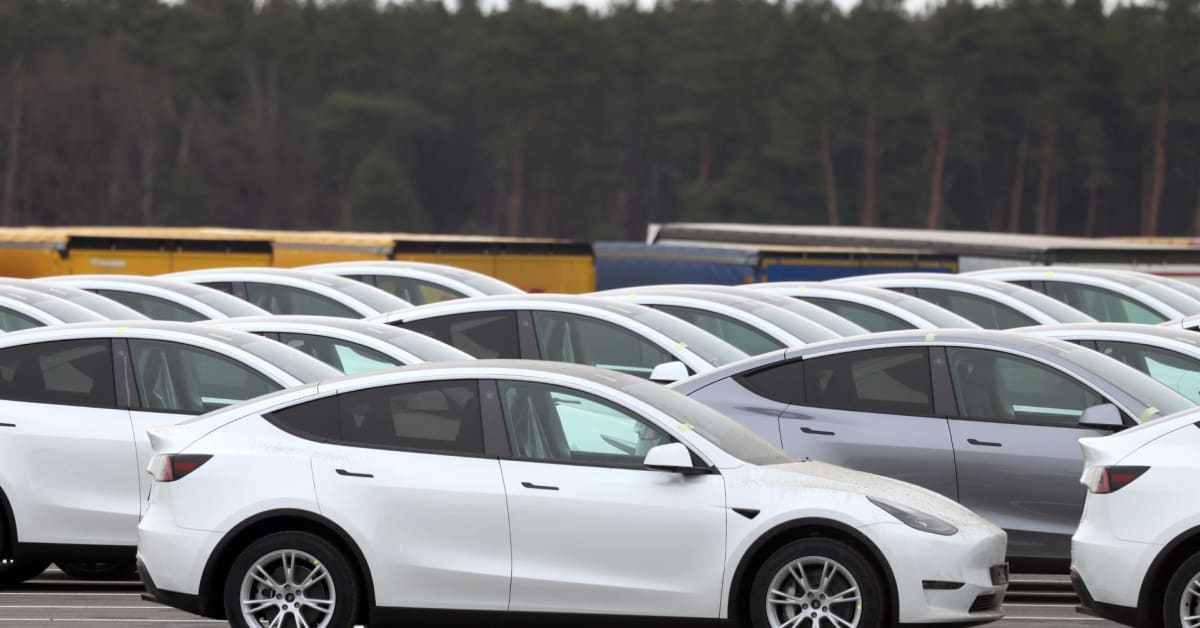
LOADINGERROR LOADING
President Donald Trump recently floated a future plan for U.S. cities that experts in political science and constitutional law say is “very concerning.”
On Tuesday, Trump delivered a deeply politicized speech to senior military leaders at a gathering he hosted with Defense Secretary Pete Hegseth at the Marine Corps Base in Quantico, Virginia. And his remarks included one particularly concerning message: The president suggested that certain U.S. cities be used as training grounds for the U.S. military.
Advertisement
While speaking about “defending the borders” of the U.S., Trump charged that “America is under invasion from within.” He then referenced his decision to send National Guard troops to the nation’s capital and other Democratic-led cities — purportedly to fight crime — before he slammed Democrats for “running most of the cities that are in bad shape.”
Trump then recalled a conversation he said he had with Hegseth, in which he told the defense secretary to “use some of these dangerous cities as training grounds for our military.”
“Last month, I signed an executive order to provide training for a quick reaction force that can help quell civil disturbances,” he later continued. “So this is going to be a big thing for the people in this room, because it’s the enemy from within, and we have to handle it before it gets out of control.”
Advertisement
Trump later added: “Our history is filled with military heroes who took on all enemies foreign and domestic.”
Trump’s speech in Virginia comes months after the president began sending National Guard troops to cities, such as Washington, D.C., and Los Angeles — and amid his ongoing threats to target more Democratic-led cities.
Alexa Van Brunt, clinical professor of law and director of the MacArthur Justice Center Clinic at Northwestern Pritzker School of Law, shared with HuffPost what she first thought when she heard Trump suggest that the military use U.S. cities as “training grounds.”
Advertisement
“The domestic deployment of the military is not the tool of a president of a democracy, but a tactic used by authoritarian and dictatorial regimes,” she said. “It is, at the very least, supposed to be a tool of last resort.”
Van Brunt, whose expertise includes constitutional law and civil rights, explained that the president has emergency authority under the Insurrection Act to “use federal troops domestically ‘to suppress…any insurrection, domestic violence, unlawful combination, or conspiracy.’”
“However, the Insurrection Act has only been invoked 30 times since its passage in 1792,” she said. “What the president seeks to do is very rare.”
Advertisement
Todd Belt, professor and political management program director at the Graduate School of Political Management at George Washington University, told HuffPost that Trump’s “training grounds” suggestion is “wholly unprecedented.”
“It is wholly unprecedented for the military to train in inhabited areas. Even local police don’t do that,” he said. “Donald Trump wants to sound tough, but in doing so he exposed how little he knows about the military and law enforcement.”
Advertisement
Trump’s ‘training grounds’ suggestion has ‘potentially dangerous’ ramifications — and it needs attention.
“It’s interesting and hardly coincidental that the ‘dangerous cities’ to which Trump suggests sending troops are in Democratically-controlled states,” Belt said. “Trump is using this issue to attempt to frame Democrats as soft on crime and Republicans as being the party of law and order.”
He later emphasized that the president’s suggestion to use U.S. cities as training grounds for the military could have serious consequences.
Advertisement
“It’s certainly potentially dangerous,” Belt said. “Any time you have military training near civilians there is the possibility of mistakes occurring. It’s also a logistical nightmare — is Trump saying the military should clear broad swaths of municipal areas of citizens for this training?”
“Or does he plan to have the military train amongst citizens, which creates a tremendous opportunity for unintentional conflict,” he continued.
Van Brunt said that there’s nothing in the “Insurrection Act or any other law” that suggests “federal troops can be deployed to quell crime in cities.”
Advertisement
“In fact, the use of the military to serve as domestic law enforcement is explicitly prohibited by the Posse Comitatus Act,” she explained. “What is perhaps most concerning about the administration’s plan to militarize cities is that President Trump is intentionally creating so-called emergency conditions in these cities to justify sending in troops.” (A federal judge ruled last month that the Trump administration “willfully” violated the Posse Comitatus Act when it sent National Guard troops to Los Angeles in early June.)
Van Brunt said that she has seen “firsthand” in Chicago instances in which Immigration and Customs Enforcement agents and other federal officers have “brutally attacked peaceful protesters (including by using tear gas, pepper spray and rubber bullets) outside of an ICE detention facility.”
And Van Brunt warned that the “ramifications of militarizing domestic law enforcement could be severe.”
Advertisement
“The administration is seeking to reshape the role of the military in American life, normalizing the use of what should be exceptional measures,” she said. “Creating artificial emergencies to justify domestic militarization is one of the first signs of a country’s descent into authoritarianism.”
“The use of the military is also likely to lead to increased violence by federal troops — as we’ve seen across the country lately — and heightened racial disparities in who is subject to force,” she continued.
20 Years OfFreeJournalism
Your SupportFuelsOur Mission
Your SupportFuelsOur Mission
For two decades, HuffPost has been fearless, unflinching, and relentless in pursuit of the truth. Support our mission to keep us around for the next 20 — we can’t do this without you.
We remain committed to providing you with the unflinching, fact-based journalism everyone deserves.
Thank you again for your support along the way. We’re truly grateful for readers like you! Your initial support helped get us here and bolstered our newsroom, which kept us strong during uncertain times. Now as we continue, we need your help more than ever. We hope you will join us once again.
We remain committed to providing you with the unflinching, fact-based journalism everyone deserves.
Thank you again for your support along the way. We’re truly grateful for readers like you! Your initial support helped get us here and bolstered our newsroom, which kept us strong during uncertain times. Now as we continue, we need your help more than ever. We hope you will join us once again.
Support HuffPost
Already contributed? Log in to hide these messages.



